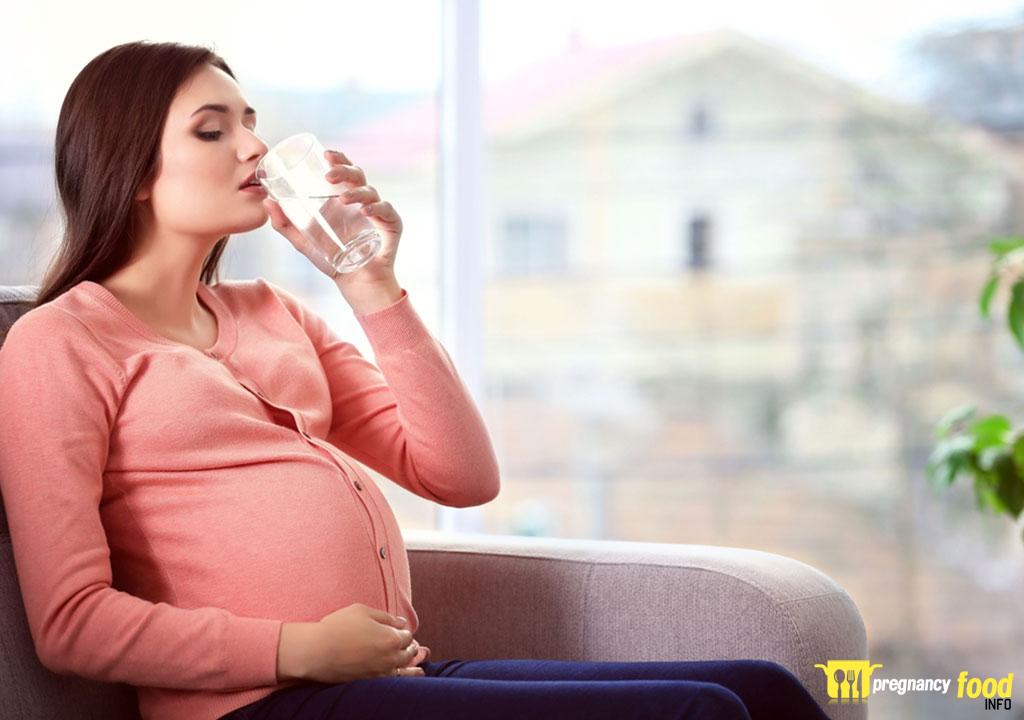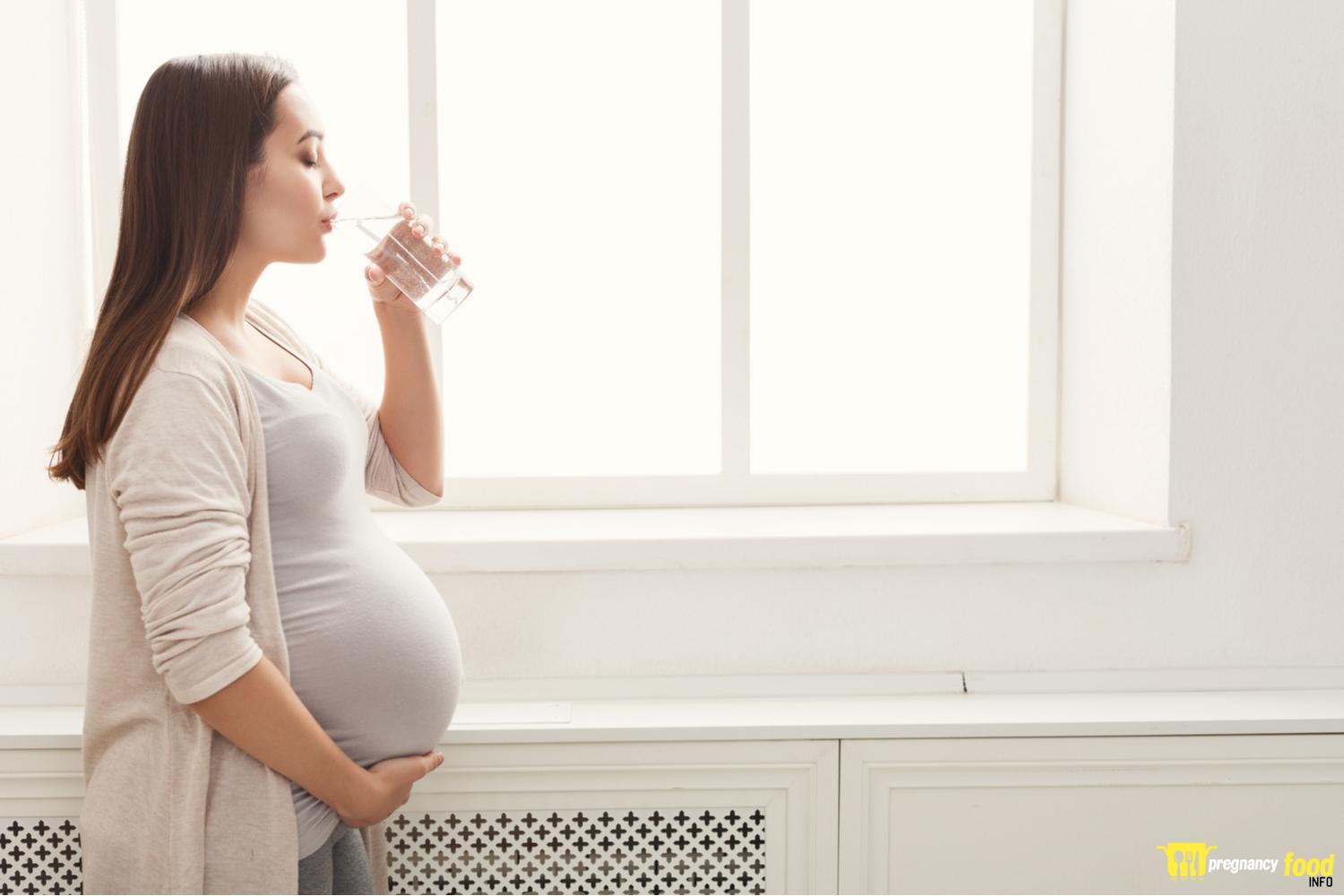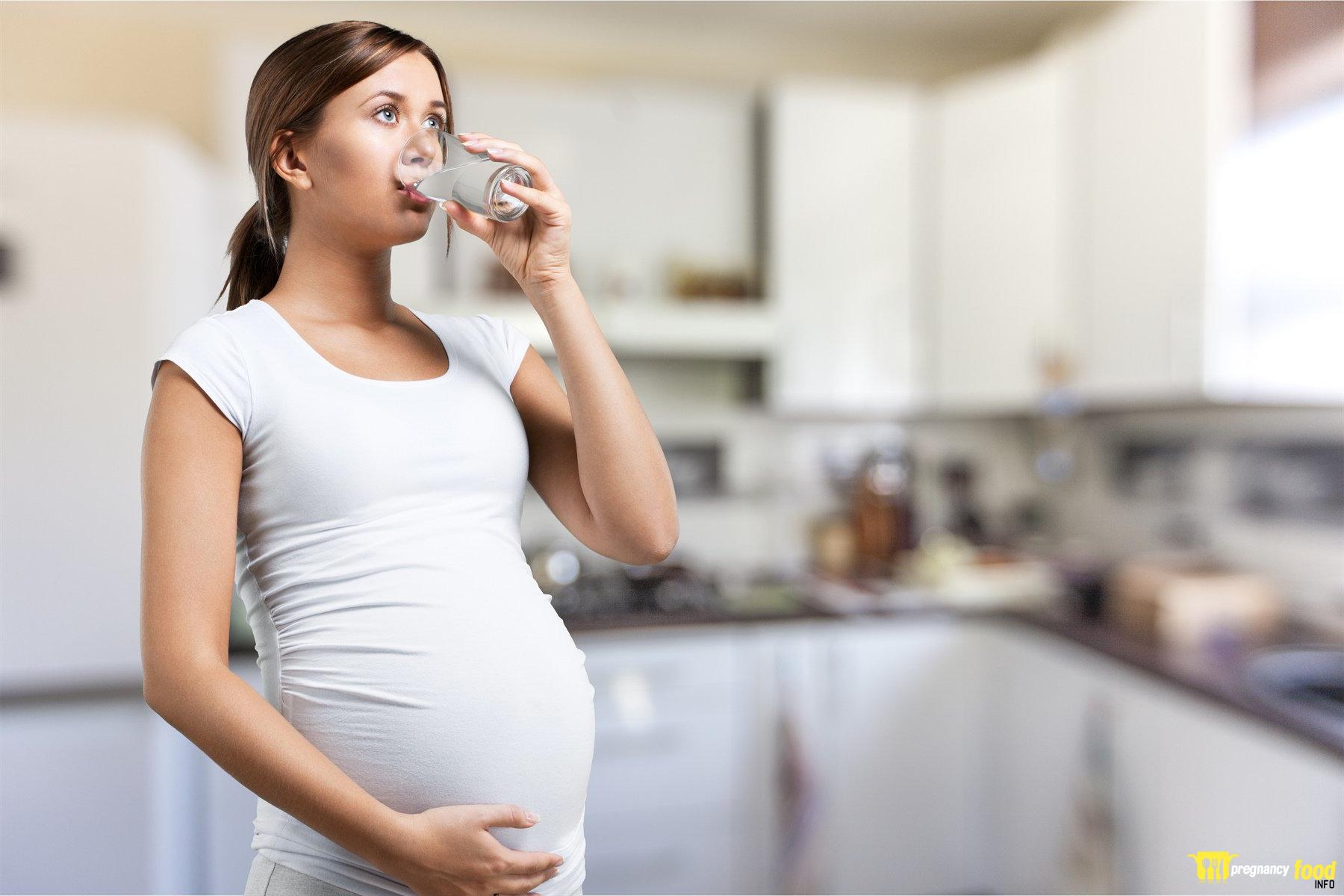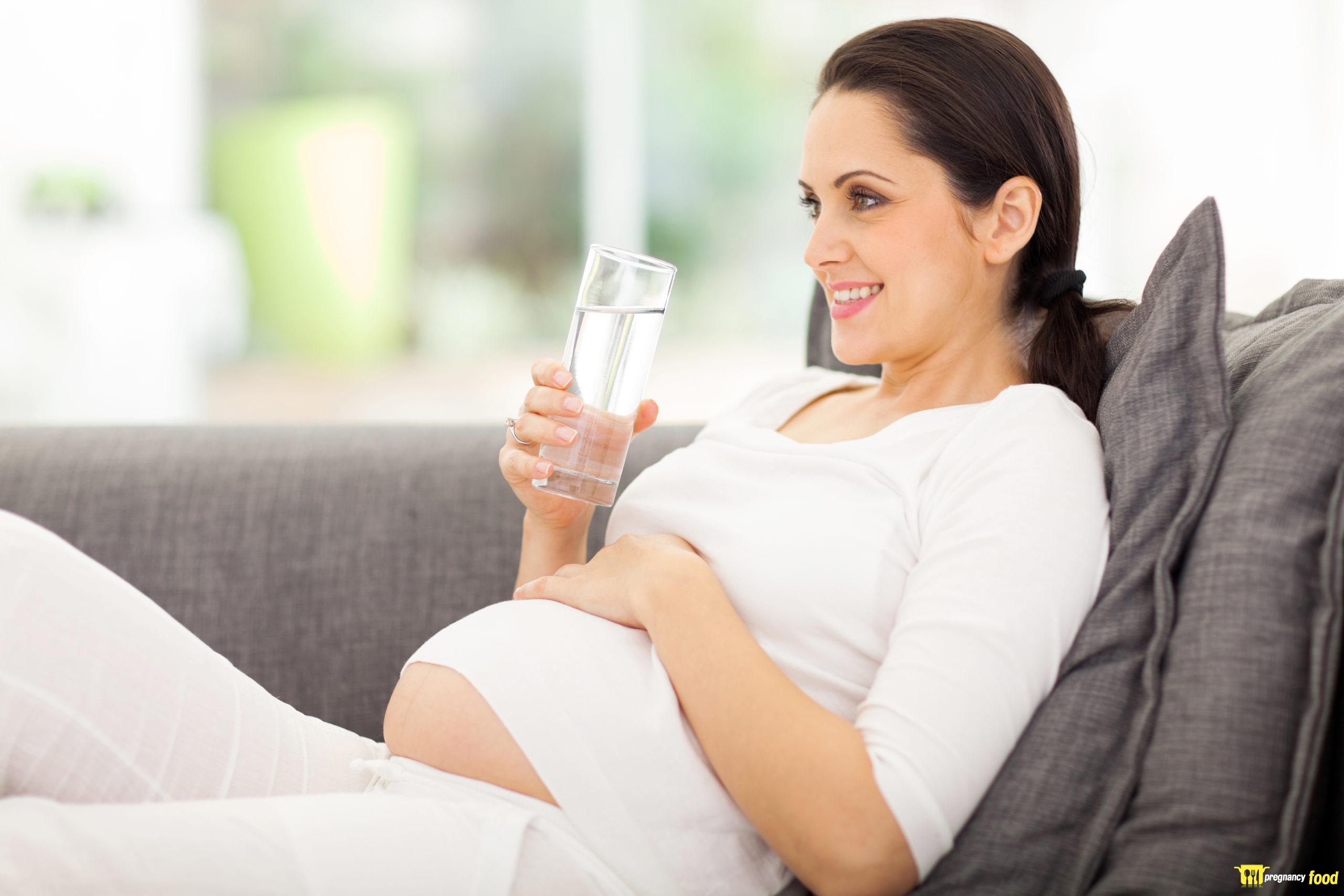How Much Water Should a Pregnant Woman Drink? During pregnancy, drinking enough water can be very important to avoid UTIs and fatigue. Water is important for the development of the amniotic fluid that surrounds your baby. It can also help prevent headaches.
Hydration helps form the amniotic fluid that surrounds your baby
Keeping yourself hydrated during pregnancy helps to form the amniotic fluid that surrounds your baby. This fluid helps to protect your unborn child from trauma and infection. It also helps your fetus grow and develop.

The amniotic fluid surrounds your baby in a thin-walled sac called the amniotic sac. The amniotic sac begins to fill with the water from your body around 12 days after conception. In the early days of pregnancy, the amniotic fluid is primarily made from your own urine. As your pregnancy progresses, your baby’s kidneys begin to produce urine.
A baby makes around 800 to 1,200 milliliters of urine a day. The baby is also able to swallow up to 500 to 1,000 milliliters of amniotic fluid a day. This helps the baby develop his or her digestive system and lungs.

The fluid surrounding your baby also acts as a shock absorber. This helps to prevent your umbilical cord from squeezing the fetus. It also keeps your baby from contacting the walls of your uterus.
Hydration can cause fatigue and headaches
Whether you’re a new mom or a seasoned mother-to-be, you should be aware of the risks of dehydration. It can cause headaches, fatigue, and other health concerns. Fortunately, you can minimize the risks. Here are some tips to help you stay hydrated.

Pregnant women need a lot more water than non-pregnant people. They need water for the baby in the amniotic sac and for the placenta to supply nutrients. They should also drink extra water each day.
Pregnant women should also avoid caffeine. Caffeine is a mild diuretic and can lead to dehydration. If you drink caffeine, drink lots of water or switch to sugar-free alternatives.
Dehydration can lead to headaches, muscle cramps, and a host of other symptoms. If you experience dehydration, call your healthcare provider for medical help. Often, the symptoms will go away on their own after you drink enough water. However, if you experience severe dehydration, you may need to take rehydration salts. Alternatively, you may need to be admitted to the hospital.
Make sure your water supply is safe to drink
During pregnancy, pregnant women need to make sure their water supply is safe to drink. There are many different pollutants that can affect their health, and a few contaminants can pass from the mother to the unborn baby. If you want to learn about How to Tell If Baby is Dehydrated, you can click on it for answers and more info.
Some contaminants are common and cause little or no problems for adults, but they can be extremely harmful to pregnant women. For example, chemicals such as pesticides, mercury, and arsenic can affect pregnant women’s health. The best way to find out whether or not your water is safe to drink is to ask your doctor. Depending on your state, there may be specific tests you can undergo to find out what contaminants are in your water.
The Environmental Protection Agency (EPA) is responsible for regulating drinking water in the United States. It is responsible for establishing legal limits for 90 contaminants. These limits set the standards for safe drinking water.
Some contaminants that can affect pregnant women include pesticides, perfluorochemicals, and other chemicals. Some experts recommend investing in water filters that are designed to filter specific contaminants.
Avoid UTIs
Having a urinary tract infection (UTI) during pregnancy can be frustrating and uncomfortable. Women who are experiencing UTIs can contact their healthcare provider and discuss the symptoms. The provider will evaluate the symptoms and determine if they are caused by a UTI. If they are, the provider will prescribe antibiotics to clear the infection.
The provider may perform a physical examination or give a urine test. If the provider suspects a UTI, they may also perform an ultrasound of the kidneys.
UTIs during pregnancy can lead to complications, including premature birth, kidney infections, low birth weight and pre-term labor. In rare cases, untreated UTIs can lead to death.
UTIs are caused by bacteria that live in the urinary tract. Bacteria from the vagina, rectum or skin are the most common types. These bacteria can also live in the bloodstream, and they can pass from pregnant women to their babies. Symptoms include a persistent urge to urinate, burning pain when the urine leaves the body and frequent bathroom visits.




